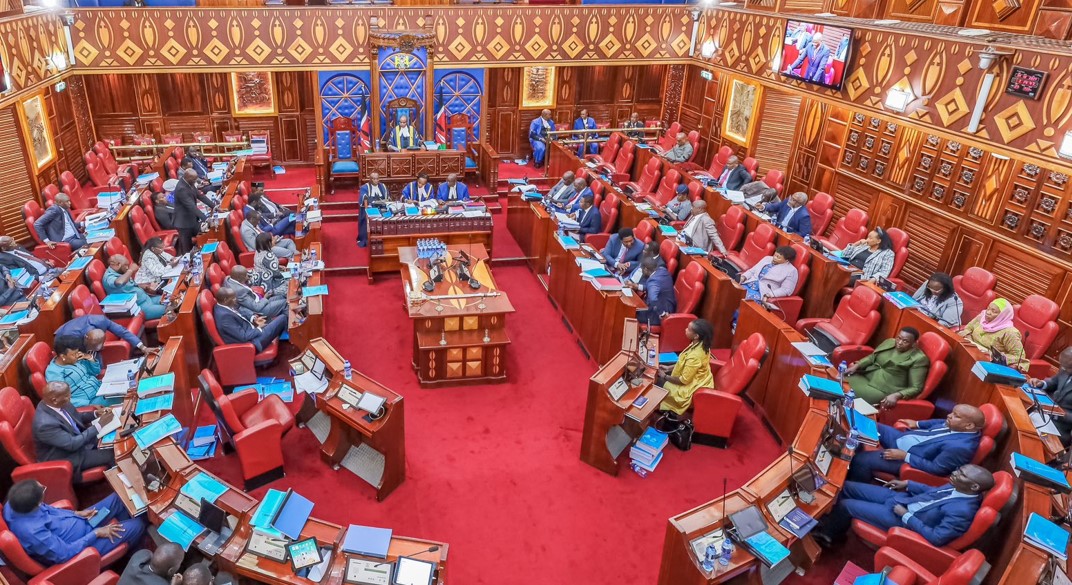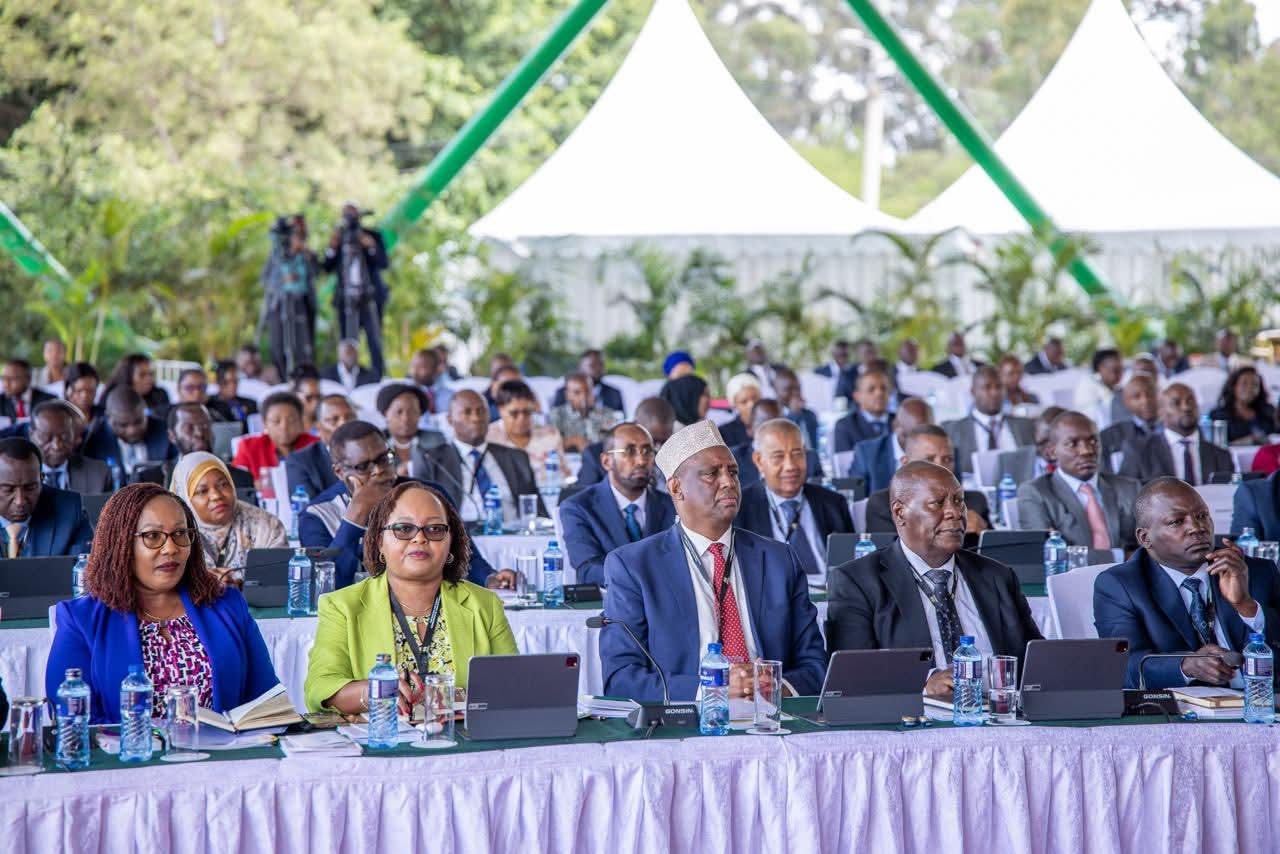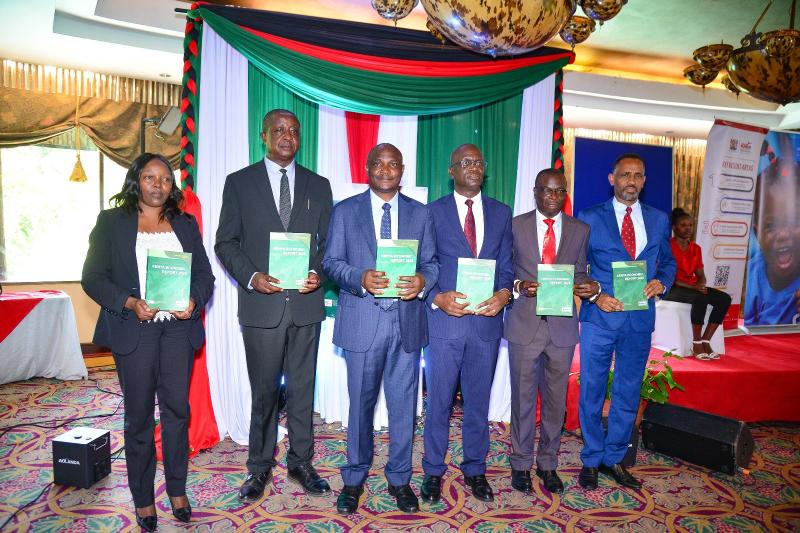Senate Bill proposes tough fines, jail for illegal electronic waste disposal

The Electronic Equipment Disposal, Recycling and Reuse Bill, 2025, aims to create a structured and legal system for collecting, sorting and recycling electronic waste across Kenya.
A new Bill before the Senate is seeking to introduce strict controls on how electronic waste is handled in the country, with individuals and organisations that dump such waste outside approved zones facing fines or time in jail.
The Electronic Equipment Disposal, Recycling and Reuse Bill, 2025, aims to create a structured and legal system for collecting, sorting and recycling electronic waste across Kenya.
More To Read
- Gaza faces humanitarian disaster with thousands trapped in flooded camps
- Truphena Muthoni smashes own world record, hugs tree for 72 hours in Nyeri
- Senate targets KEMSA in plan to turn devolved institutions into executive agencies
- Supporting Africa’s drylands: Insights from the pastoralists who call them home
- Kilifi County reports increase in dog bites and rabies cases
- Senate convenes special sitting to hear Governor Nyaribo’s impeachment charges
The proposed law, sponsored by nominated Senator Peris Tobiko, requires anyone who produces e-waste to dispose of it only at designated collection points within their ward.
“A person who generates e-waste in Kenya shall dispose of it at the designated ward consolidation site within their respective county ward,” the Bill states.
Those who fail to comply with this provision risk a fine of Sh20,000, a six-month jail term, or both.
At the same time, those who operate recycling plants without the required licence will be fined up to Sh50,000 or jailed for a similar period.
The law sets out a plan where electronic waste will be collected at ward-level consolidation sites, taken to larger sorting centres in counties, and then delivered to a central National E-waste Recycling Plant.
The recycling plant will be established by the Environment Cabinet Secretary in consultation with Nema and must sit on not less than 30 acres, with a surrounding buffer of at least five acres.
Governors, on the other hand, will be tasked with setting up and gazetting e-waste sorting centres in their counties, each on at least five acres and with a two-acre buffer zone.
They will also be allowed to create smaller ward consolidation points for early collection and aggregation.
“The Cabinet Secretary, in consultation with Nema and the Council of County Governors, may prescribe standards, guidelines and requirements for the establishment of the National E-waste Recycling Plant, e-waste sorting sites, and ward consolidation sites,” the Bill reads.
The county executives responsible for the environment will be in charge of licensing e-waste collectors.
These licensed collectors will be required to move materials from the ward collection points to the sorting facilities or the national plant.
“An e-waste collector shall deliver materials collected from ward consolidation sites to a designated sorting site or the National E-waste Recycling Plant,” it adds.
Private individuals or businesses that wish to recycle e-waste must first seek approval from the Cabinet Secretary for Environment.
“No person shall operate as an e-waste recycler without first obtaining a licence from the Cabinet Secretary,” the Bill states.
Senator Tobiko said Kenya produces about 3,000 tonnes of e-waste annually, although recent estimates place the figure at 51,300 tonnes.
Most of it ends up in dumpsites mixed with general waste, making it hard to separate and dispose of safely.
According to the World Health Organisation, e-waste is classified as hazardous because it contains more than 1,000 dangerous substances.
These include lead, mercury, and dioxins that can pollute the environment and cause serious health problems.
“Due to the grave implications that mishandling e-waste can have on both the environment and public health, it is paramount that a legal framework be established to ensure the safe and regulated handling and disposal of e-waste,” the Bill emphasises.
Top Stories Today












































